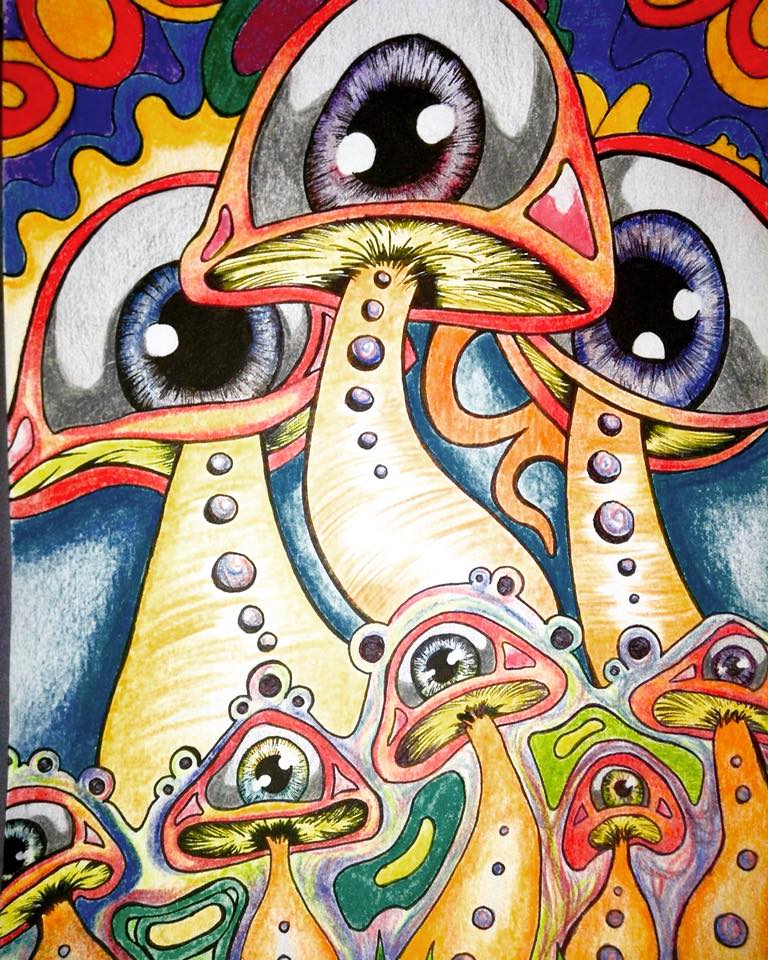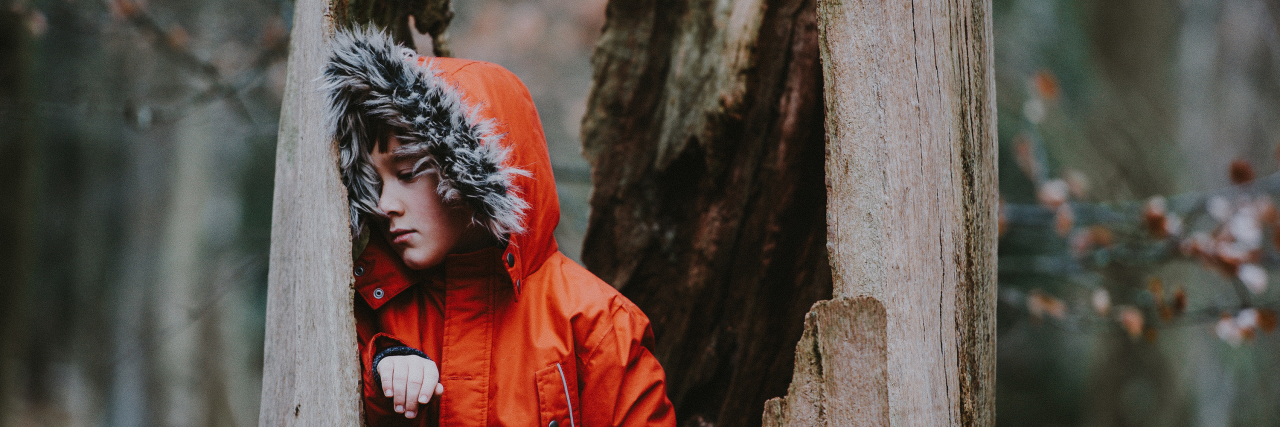Being a child or a teenager can be an extremely confusing time. Hormonal changes aside, we sometimes feel isolated and alone, particularly where mental health is concerned. How are we to explain what’s going through our minds when we don’t understand it ourselves? What’s “normal” and what isn’t?
While more parents these days are taking the time to teach their children about good mental health practices, chances are you might have grown up at a time when society wasn’t as aware of the need. Many of us grew up struggling in silence, dealing with depressive and suicidal thoughts without the knowledge necessary for dealing with or even talking about them.
If you grew up hiding your depression, then you aren’t alone. That’s why we asked our mental health community what they realize, in hindsight, were signs of “hidden” depression. Remember: you don’t have to fight this alone.
Here’s what our community had to say:
1. “I failed to maintain personal hygiene. I didn’t bathe. I just didn’t have the energy. I also lost considerable weight and didn’t speak very often. Nobody ever checked to see what was up. My family, teachers and staff at school… just nobody. As an adult, I’ve received therapy and the help I needed, but as a teenager, I felt isolated, outcast and rejected, because I perceived myself as being absolutely alone. I often wonder how different my life would’ve been had I gotten help earlier. I sometimes feel like I’ve wasted my life, or that it was stolen. Everyone thought I was just being a ‘weird’ teen, but the truth was, I was struggling to breathe.” — Emily B.
2. “Always said ‘sorry’ for everything, always asking ‘am I bugging?’ Constantly worried if I was wanted or not, so that led to being alone or not social. And now I do a lot of things by myself.” — Keisi G.
3. “My room was always a mess; as my mom said, ‘It looked like a tornado had gone through it.’ I was just too tired to deal with the mess and got overwhelmed by it, so it stayed like that. I’m a perfectionist, I love to clean and organize, but my depression halts me in my tracks.” — Stephanie R.
4. “I lacked motivation and concentration through school, so I found it extremely hard to do the work and revise for exams. Essays and exam revision were the worst because I couldn’t sit for 10 minutes before I was fighting to keep myself on track. It lead to a lot of sleepless nights and crying.” — Rachel W.
5. “Getting irritated at everything and everyone. My parents just thought it was because of puberty, but I was beyond puberty mood swings.” — Katlin W.
6. “I had a hard times making friends, especially in school. I was mostly very quiet and didn’t fit into any group, which led to me getting bullied a lot (worsening the depression). I’d daydream about being alone somewhere else to the point I didn’t pay attention.” — Tia M.
7. “In high school, I rarely hung out with friends outside of school. The very few times I did was for birthdays or if we had a school project we needed to work on. It wasn’t because I wasn’t allowed to see my friends or that I had no time for it; I just never made the effort. I’d miss days and sometimes weeks of proper hygiene. I remember washing and brushing my hair one night and a friend had asked me the next day what I did to make my hair look so nice. I told her I brushed it and she laughed; she didn’t think I was being serious.” — Reyna D.
8. “I stopped drawing and I can’t get back into it. This is the last thing I managed to sit and was able to draw; I really miss it.” — Rebecca C.

9. “Acting out at school. I used to get into fights all the time in high school — physical fights, because I was so angry that I didn’t understand what was going on inside my own head and didn’t feel like I could talk to anyone. I even dropped out of high school. After I dropped out, I started going to therapy. I was diagnosed with depression and generalized anxiety disorder when I was 16. As an adult, I continue therapy and have been on medication to help. Now I am a mother who is working on getting her bachelor’s degree in communications.” — Alyssa L.
10. “Sleeping all the time. I’d wake up early for school, come home and take a nap, eat dinner, go to soccer, take another nap and then do my homework. Once I was done with my homework, I’d go to bed. Also the avoidance aspect. I avoided my friends when it got really bad. I didn’t want to hang out or do anything other than sleep.” — Cherish I.
11. “I stopped caring. My grades plummeted from As to Fs. I slept a lot or ran myself ragged trying to stay busy. I hid behind a smile insisting nothing was wrong, yet inside trying to figure out what was wrong with me. I lashed out at everyone who tried to help.” — Viki C.
12. “I didn’t make friends and when I did, I would constantly question their motives. I would sleep all day and all night to the point my mother thought I had a thyroid condition. I lost motivation in school — I used to excel but couldn’t be bothered to the point where I barely graduated.” — Sam T.
13. “This may be odd, but I was the ‘overachiever.’ I needed to get good grades. I needed to be involved in every extracurricular activity during school. I volunteered everywhere I could. Every year, I got highest academic or student of the year. I graduated with a 90 percent grade average, valedictorian and received three scholarships. I was the ‘role model’ in my community. Now that I am in my early 20s, I recognize I needed to be valued. I needed to feel like I was something in the world, because I felt like I was nothing. I needed to be reassured that I was doing good, because no matter what I did, it never felt like enough. I needed someone to be proud of me, because I know I never was proud of myself.” — Lauren P.
14. “When I was quite young (like 7 years old) and just started using a computer, I would often listen to ‘Lonely‘ by Akon. It was one of my favorite songs at the time. Now that I’m a grown up, I realize how sad that song actually is and what it talks about.” — Anahita H.
15. “Extreme anger. I didn’t know how to express myself properly, and it always came out as anger. Reminders for me to do ‘normal’ things like bathe and tidy when I had no energy to do so led to extreme arguments, irrational anger and outbursts. I didn’t care about anything anymore and the only emotion I couldn’t suppress was my anger at everything: my situation, my past and myself.” — Allie S.
16. “Smiling when in public but then going back home to sit alone and never wanting to go back out. I acted like everything was fine, but really I felt lonely and empty.” — Abi T.
17. “I didn’t like celebrating my birthday because I didn’t see living for another year as something to celebrate. I’ve never really liked my birthday, but I didn’t connect the dots that it was connected to my depression until one really intense therapy session about a year ago.” — Katie H.
18. “Starting when I was around 10 or 11, I would sometimes fantasize about getting off the world for a little while. I didn’t want to be dead, just take a break from being a person.” — Ella B.
Did you grow up with “hidden” depression? Let us know in the comments.
Photo by Annie Spratt on Unsplash

